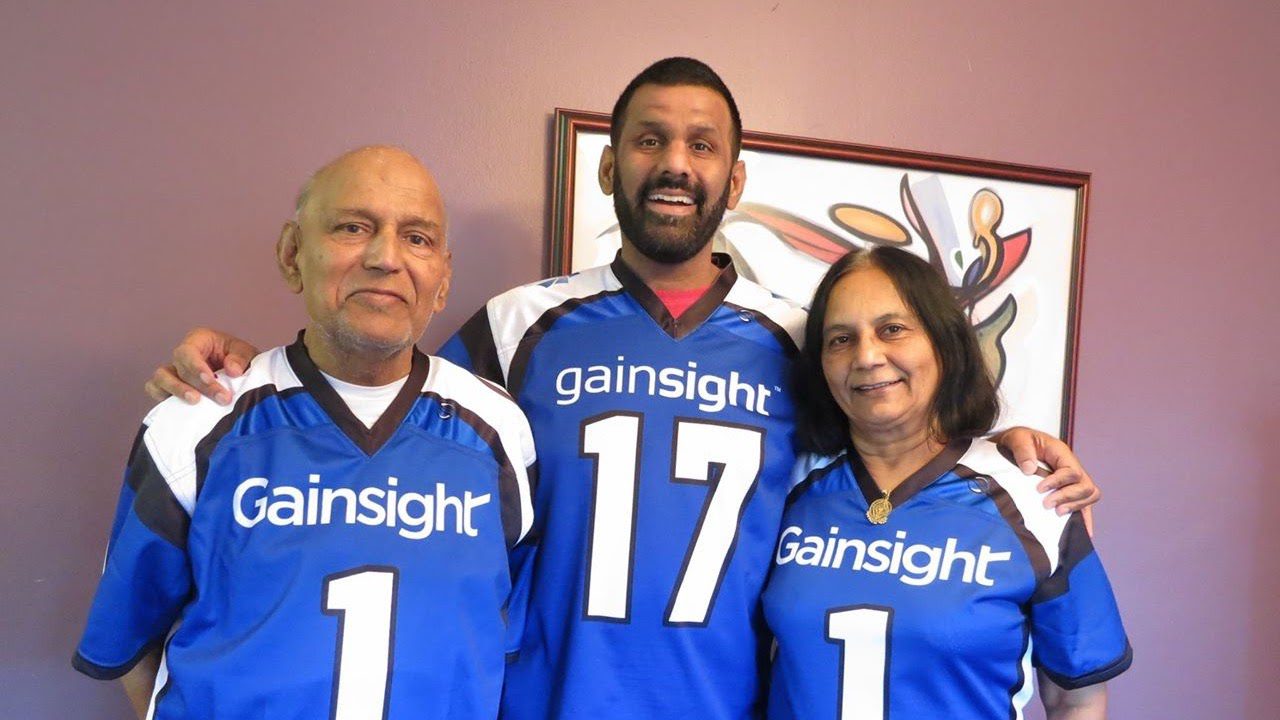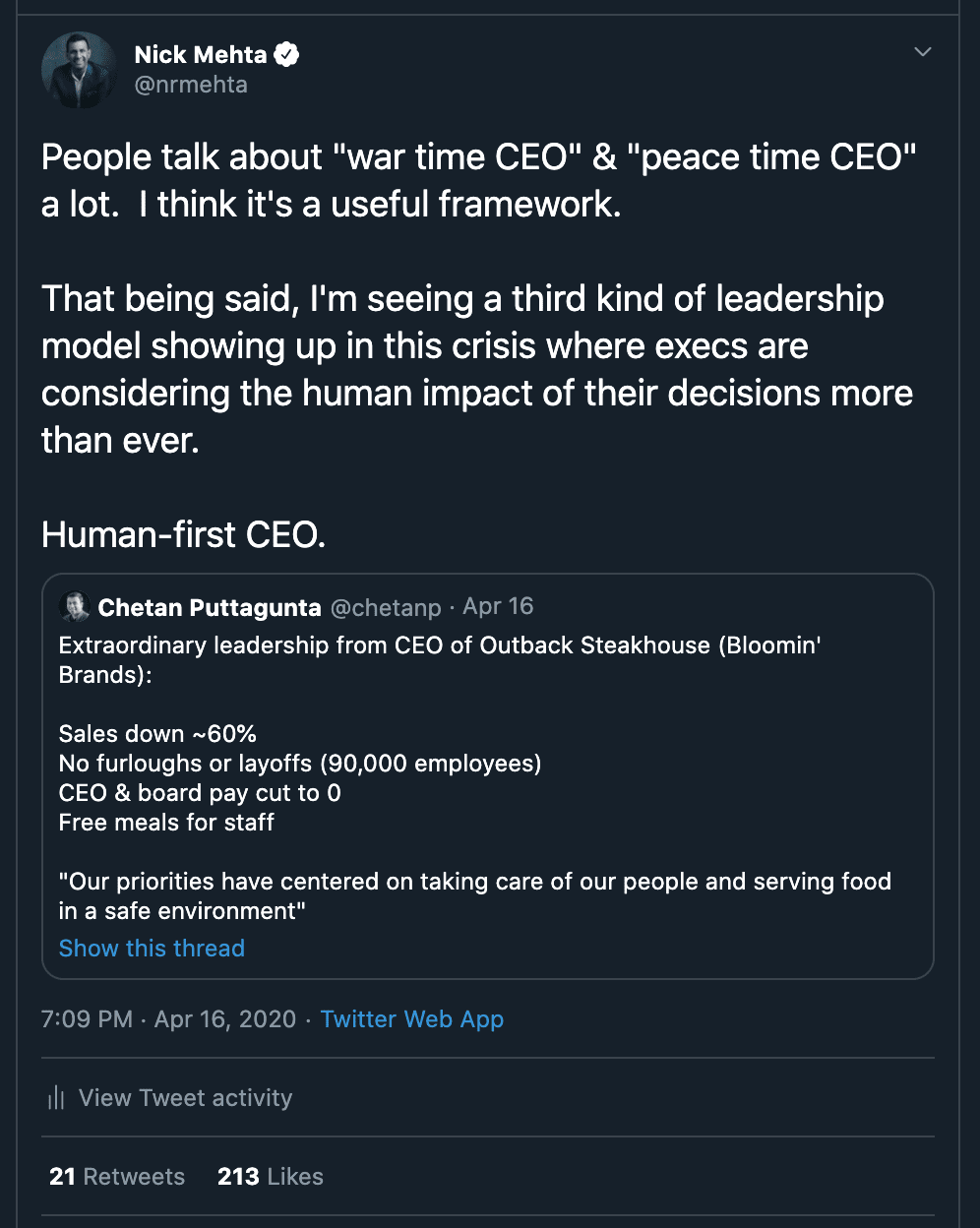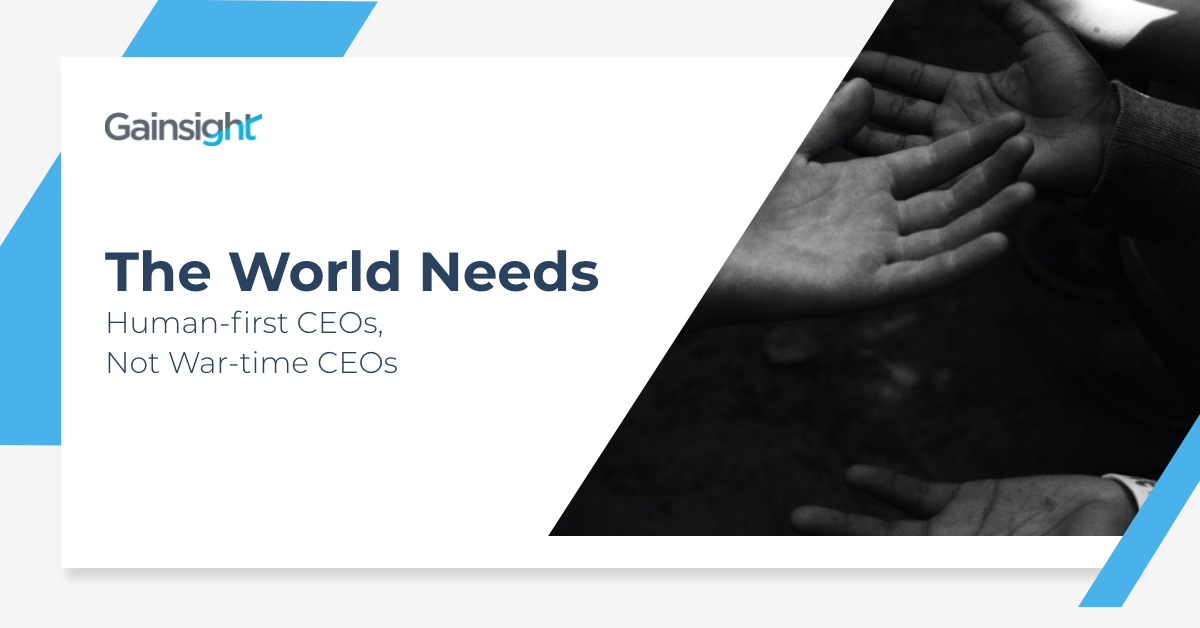One of my favorite business books of all time is The Hard Thing About Hard Things. It’s a compendium of stories from current venture capitalist and former CEO Ben Horowitz about his time running companies. What’s so compelling about the book, even six years after its publication, is that it’s built around the principle that there are no easy answers or quick fixes in leadership. I remember feeling “seen” after reading the book in a way I hadn’t before. Indeed, I re-read his chapter “Nobody Cares” on a regular basis.
Upon reflection though, there is one section where I’d like a minor rewrite. Horowitz famously shared his model (also in this blog post) of “Peacetime CEO / Wartime CEO.” To quote from the book:
Peacetime CEO knows that proper protocol leads to winning. Wartime CEO violates protocol in order to win.
Peacetime CEO focuses on the big picture and empowers her people to make detailed decisions. Wartime CEO cares about a speck of dust on a gnat’s ass if it interferes with the prime directive.
Peacetime CEO builds scalable, high volume recruiting machines. Wartime CEO does that, but also builds HR organizations that can execute layoffs.
Peacetime CEO spends time defining the culture. Wartime CEO lets the war define the culture.
I remember reading it for the first time and thinking “wow – he nailed it.” He captured the dramatic differences in leadership needed when you are in smooth sailing versus rough waters. In the details, Ben’s advice is spot on. CEOs absolutely need to pivot in challenging times. They need to prioritize, focus, and execute. There’s no debating that.
But I personally have a hard time with the war analogy. As investor Roy Bahat from Bloomberg Beta says, “business is not war.” And I’ve found that the war metaphor gives CEOs an excuse to forget that business is still fundamentally about leading human beings.
Never in recent memory has this been more true than for business leaders navigating COVID-19.
Family Dinner

So what got me thinking about humanity in business? Let me tell you a story. The year is 2017. I’m driving my mom and dad (both in their 70s) to a dinner for the three of us. It’s a big night out – so that of course means P.F. Chang’s.
My mom knows that I’m a science nerd at heart – and she is too. My mom is also extremely direct. So as we drive to the restaurant, she tells me “it’s too bad you didn’t go into science because you could have really done something with your life.” Now my dad, trying to smooth things over, pipes up and says “don’t worry Meena – he’s only 40 – he still has time.” My mom closes the topic out by saying “no – he’s too old – but maybe his kids can do something.”
While that story certainly reflects as much about my George Costanza-like childhood as anything else, it sent me – and Gainsight – down a path of self-exploration. Gainsight is a pretty cool company but we aren’t curing cancer (nor COVID-19) or flying rockets into space so what am I doing with my life? So why do we do what we do?
Start with Why
At Gainsight, we’re huge believers in the concept of “Start with Why” popularized by Simon Sinek.
In the early days of Gainsight, as we reflected as a founding team, we realized our “why” could be about the way we run our business. We defined our Values in a tiny conference room in Mountain View, CA when we launched Gainsight in 2013. As almost everything else changed, the Values stayed the same. From the zany (Child-like Joy) to the intellectual (Shoshin – Beginner’s Mind) to the aspirational (Stay Thirsty, My Friends!), they represent our raison d’etre.
The underlying theme beneath those Values is that we think businesses have stakeholders that aren’t just assets or transactions. We need to drive Success for All of our stakeholders – from customers to partners to employees and their families to our shareholders to our community.
The bottom line is that we want to treat all of our stakeholders as human beings first. And we strive to create an environment for everyone to bring their whole human selves to work. Michael Corleone in The Godfather was wrong – it’s not business – it’s personal!
In parallel, we want to build a strong, sustainable business. So in 2017, we encapsulated our Purpose – or Why – into the following pithy statement that has withstood the test of time:
To be living proof that you can win in business while being human-first.
This brings me back to the beginning of the article. What time is it for CEOs? Is it peace-time? Is it war-time? I’ll argue that it’s time for something different – it’s time to be human-first.
Human-first Approach to Teams
COVID-19 and the figurative tsunami of follow-on crises (I really hope there isn’t an actual tsunami coming, because that would be SO 2020!) have shaken us all to the core. But I think the distress of the world has also stripped clean the veneer of “businesslike” artificiality from leaders. Between the health crisis, the financial crisis, the social justice crisis, and more, we are realizing that we are all trafficking in much more than the bottom line.
I saw this first hand at the beginning of the downturn. In economic recessions of the past, CEOs prioritized the bottom line and rushed to “trim the fat” in their companies (what an inhumane expression). Some used the crisis to make layoffs appear to be simply inevitable and out of their control. That was the same logic that led companies to think of employees as “assets.” This time around, while some had no other choice, I have been inspired by the number of CEOs who took a very different approach. They thought hard about the impact of throwing their teammates into a world of 20+% unemployment during a medical pandemic and instead chose another path. Marc Benioff, CEO of Salesforce, famously made his 90-day pledge of no significant layoffs. Remarkably, in one of the most challenging sectors, the CEO of Outback Steakhouse did everything he could to retain and support his team:

Even those that laid-off teams, like Airbnb, attempted to bring humanity and transparency into the process. Kieran Snyder, the CEO of Texio, went so far as to advocate for each of her departed teammates publicly on Twitter.
Human-first CEOs didn’t merely consider their teammates’ livelihoods. They also thought deeply about their mental and emotional well-being. François Locoh-Donou, CEO of F5 Networks, a company whose Board I proudly serve on, shared his vision for keeping F5 together during quarantine in a very authentic, human way.
Human-first CEOs are reconsidering the makeup of their workforce and assessing if their representation is in line with the overall demographic mix of the population. While companies have made strides in gender representation in the last few years, much more is left to be done. And technology companies have shockingly little to report in terms of progress around Black and Latinx employees. Human-first CEOs realize that this situation must change.
As we settle into our “new normal”, human-first CEOs are reimagining their long-term approach to making jobs work for all employees—from increasing work-from-home options and running summer camps for employees’ kids to providing extra support for mental health and physical wellbeing.
Human-first Approach to Customers
In crises of the past, companies often adopted a “zero-sum game” mentality. If they “gave in” to customers, they would lose. So they held a firm line. Each company for themselves, right?
But this time around, as we saw restaurants, hotels, airlines and dozens of other industries collapse globally in a matter of days, we heard CEOs, for the first time, shift from “what’s in it for me?” to “how can I help?”
Public cloud company Box, run by one of the most authentic and “human” CEOs around, Aaron Levie, immediately made a number of its products and services free to customers. Salesforce allowed its customers to delay payments for 90 days. Thousands of companies realized that their businesses would only survive if their customers did.
The downturn doubled down on the notion that business success requires customer success.
Human-first Approach to Community
I remember attending a CEO peer event in 2019. I asked the room of about 50 business leaders “how do you discuss racial tensions, gender gaps, LGBTQ+ rights, and the like with your teams?”
The answer absolutely deflated me. “Nick, I recommend you keep your head down and not talk about anything too controversial.” “It’s not our job to focus on those areas.” “Our job is the bottom line.”
Only one brave CEO stood up and said “I stand up for what I believe is right. I marched in Pride with many of our teammates.”
But that one CEO was certainly the exception.
And I’m not the only one who saw this. Ursula Burns, the former CEO of Xerox, was quoted in the last few weeks as saying: “corporate America have generally not distinguished themselves as moral leaders. They generally have gone along with the flow, and for a long time, that’s all we expected them to do. They were responsible to their shareholders.”
I hope and believe that COVID-19 and the other historic events of 2020 will change everything.
To paraphrase For Whom the Bell Tolls, we’ve quickly learned that no company exists on an island. We all depend on each other and on the community around us. We need global cooperation, public health, functioning government, and a just society.
Jamie Dimon, CEO of JP Morgan Chase, said it well: “This crisis must serve as a wake-up call and a call to action for business and government to think, act and invest for the common good and confront the structural obstacles that have inhibited inclusive economic growth for years,”
Rachel Carlson, CEO of Guild Education, saw the looming health crisis early and teamed up with hundreds of fellow CEOs to get them to shelter-in-place early, under the moniker of #StopTheSpread. She then used the resources of her company to help retrain displaced workers from affected industries to new and growing ones.
Zack Rosen, co-founder of Pantheon, launched Covid ActNow to bring data science and statistics in a user-friendly manner to the dialog around governmental response.
Aaron Levie from Box, along with Joelle Emerson, heard about the terrible injustice highlighted by the murder of George Floyd and quickly committed $500,000 to causes helping around justice for Black Americans.
My hopes and beliefs were validated when my CEO group gathered again recently. The same leaders who were reluctant to discuss social issues in 2019 were reassembled the week after the George Floyd death and the conversations were 100% about justice and equality. Whether the dialog was driven by genuine compassion or a desire to adapt to the new mainstream, nonetheless the discussion finally happened.
This Time It Is Different
One of the most dangerous phrases in life is “this time it’s different.” And yet, hope and our actions depend on nothing more than those four words.
The war-time CEO believes that life is fundamentally a zero-sum game. The more I give my clients, the less I get to keep. If I yield to my employees, they will always ask for more. The problems outside of my office are someone else’s problem.
And I’d argue the war-time CEO model has gotten us to this point and will take us no further. As Trinity famously tells Neo at the beginning of the movie The Matrix, “Because you have been down there Neo, you know that road, you know exactly where it ends. And I know that’s not where you want to be.”
Perhaps it took the mother of all of the crises, one after the other, to show us a new, more human path for leadership. Maybe after war and peace, we’ve discovered a new alternative. If there was ever a time for Human-first Leadership, it’s now.

